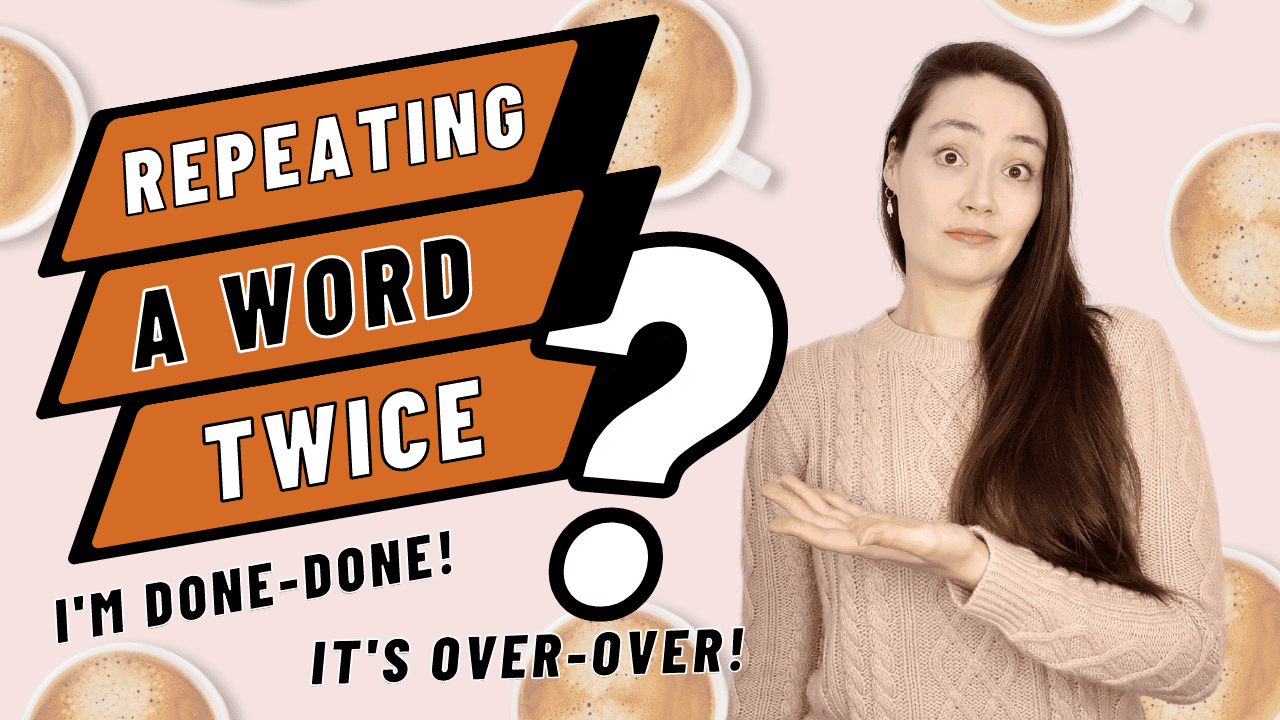Have you ever heard someone say the same word twice and thought to yourself “why”?
In informal spoken English, we can repeat the same word twice to add clarification and emphasis. Repeating a word twice can fromally be called:
- Lexical cloning
- Reduplication
- Contrastive focus reduplication
Repeating a word twice for emphasis is common. But, like with many common things, “common” doesn’t mean “use whenever you can.” There is a time and place for this. If lexical cloning is overused, it loses its power.
Keep an ear out for people using lexical cloning in movies, podcasts, etc.
Rebecca is rich. She’s not just rich; she’s rich-rich.
Here, “rich” is said twice to emphasize how rich Rebecca is. The word “rich” is subjective. There are many levels of being rich. When a person says “rich-rich,” it’s clear that they mean extremely rich.
The repeated word can be a noun, adjective, verb, preposition, or even a phrase.
The customer says “white-white” to mean he wants plain white paint, not a different shade of paint.
The person says “like-like” to mean that Eric likes the lady more than just as a friend.
How well can you know someone? We can know a person’s name and what they do, but we don’t know-know that person. Who can you think of that you “know” and who do you “know-know”?
You might also like:
10 tips to learn phrasal verbs easily
Sick could mean having a runny nose, or being too tired to get out of bed. Sick could mean throwing up. But, if we say “sick-sick,” we know it’s serious.
A: I’m broke.
B: Me too.
A: No, I’m broke-broke.
BROKE is an adjective which means a person has no money. It is not the same as POOR. A poor person might not have a house and might not be able to eat well every day. A broke person doesn’t have immediate access to any money. University students can be broke. They can go to university, but they don’t have much money for clothes, a car, restaurants, etc.
Person A repeats “broke” twice to mean: I really don’t have any money. I have $0 in my bank account. I have to wait two weeks before I get paid.
A: Their wedding is off.
B: Off? Are they going to postpone it?
B: No, it’s off–off. Apparently, they both decided it’s better if they go their separate ways.
Person B repeats “off” to emphasize that the wedding has been canceled and will not happen. It hasn’t been postponed.
And finally for all the English lovers out there, do you like American English or do you prefer English-English? 😉










